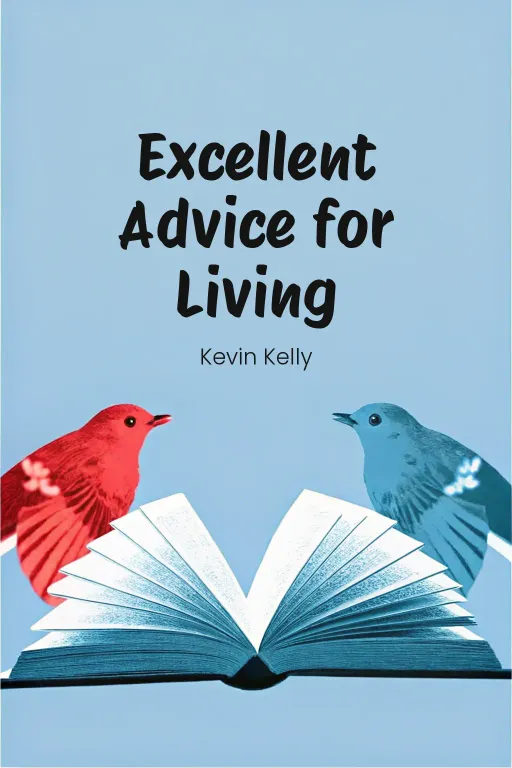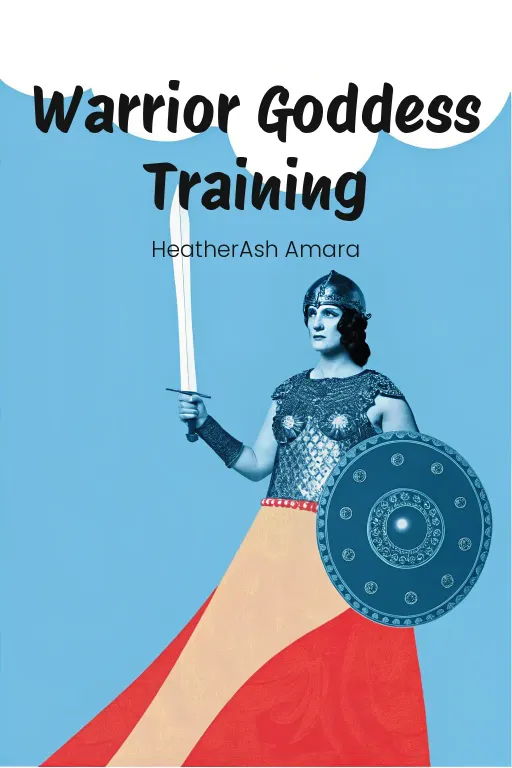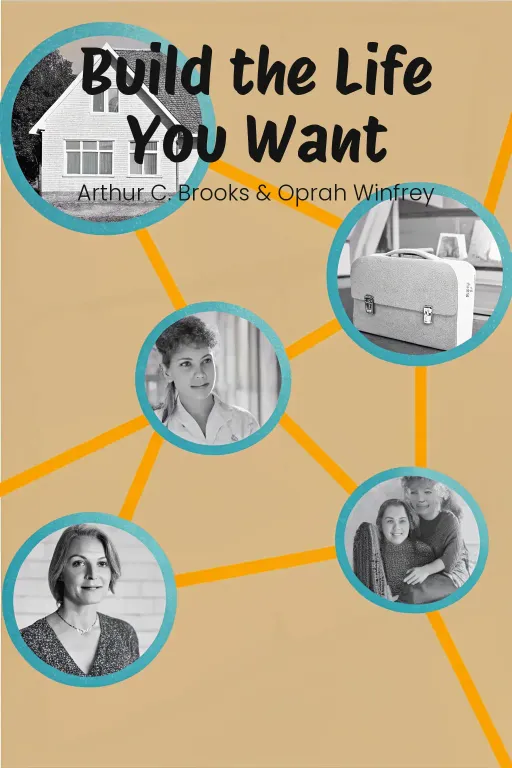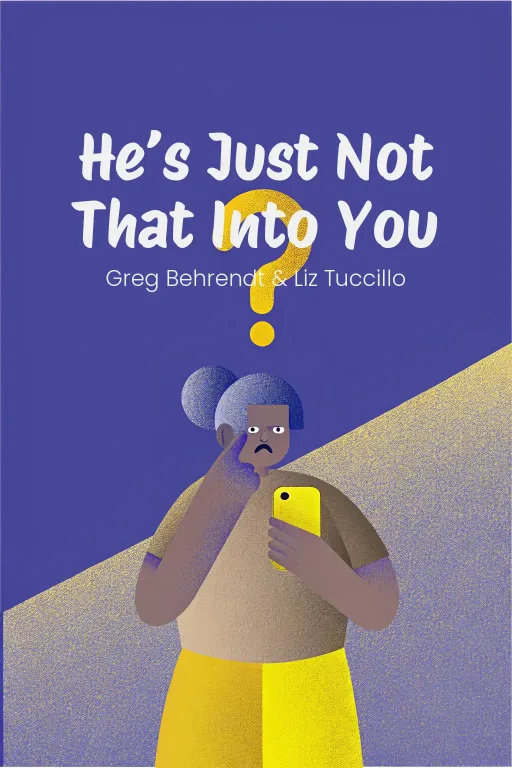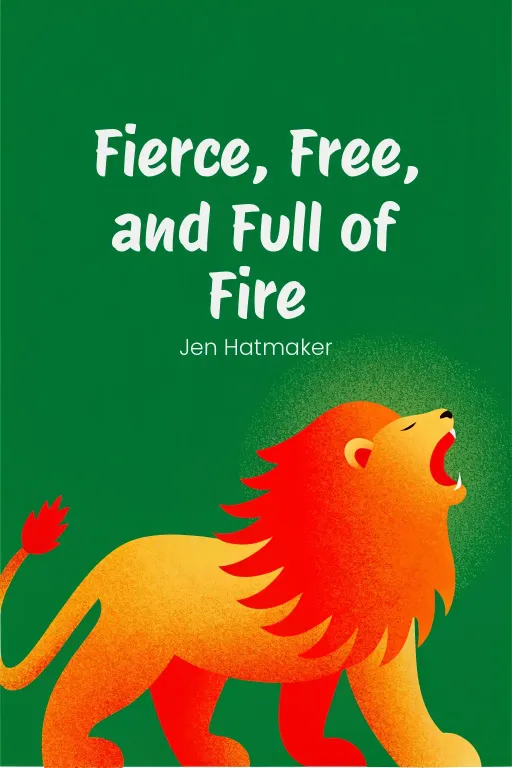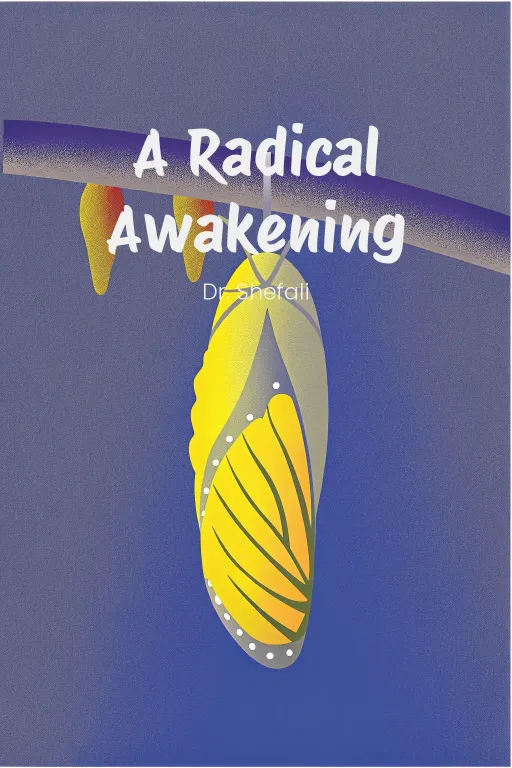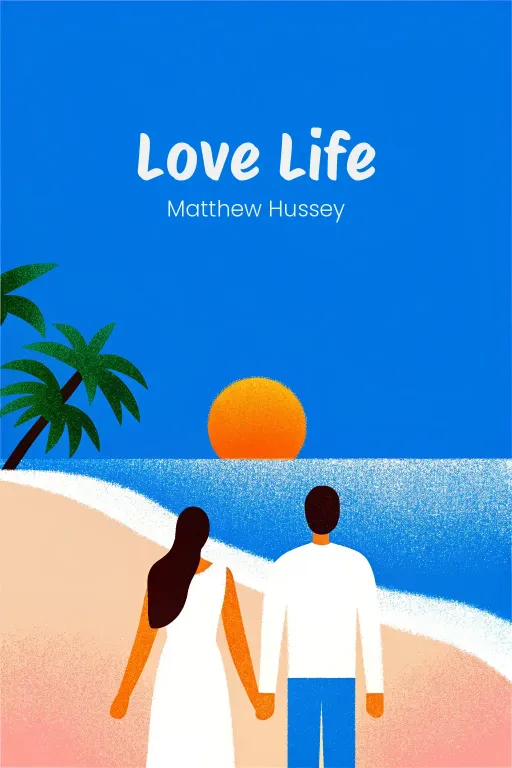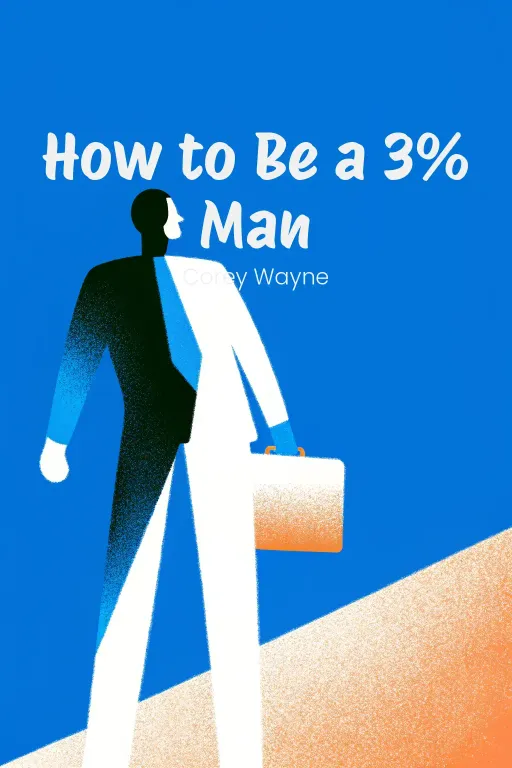
Life's Remix: Evolve, Decide, Connect
Podcast by Beta You with Alex and Michelle
Wisdom I Wish I'd Known Earlier
Life's Remix: Evolve, Decide, Connect
Part 1
Alex: Hey everyone, and welcome back to the show! Michelle, you know how we sometimes wish there was just, like, a handbook for navigating life? A simple guide to making smarter decisions, connecting with people better, and maybe even understanding what success truly means? Michelle: <Scoffs> A life cheat sheet? Alex, that sounds amazing, but knowing me, it'd end up buried under a pile of old receipts. What's the real deal here? Alex: Well, I've been diving into Kevin Kelly’s “Excellent Advice for Living”. The book is basically a treasure trove of 450 pieces of wisdom, all wrapped up in one brilliant collection. It's all about leveling up as a person, making choices that have substance, and living with intention and kindness. Think of it less as an instruction manual for, say, assembling IKEA furniture, and more as a guide for improving how you operate in the world. Michelle: Okay, a "guide to life," eh? I'm intrigued, but what's the catch? Is this all sunshine and rainbows, or is there some actual, practical advice we can use? Alex: Oh, it's totally grounded, believe me. And today, we’re going to unpack it into three key areas. First, we'll explore why constant learning and personal growth are essential for a fulfilling life. Then, we'll look at ways to make really thoughtful choices when you're bombarded with options. And finally, we'll talk about how relationships matter and how leaving a mark goes beyond just money or fame. It's about the difference you make. Michelle: So, we're tackling everything from self-improvement to changing the world. Ambitious stuff! Where do we even begin?
Learning and Growth
Part 2
Alex: Okay, let’s dive in with learning and growth. Kevin Kelly sees this as, like, the key mindset for a meaningful life. It’s not about reaching some final destination, but about constantly evolving, staying curious, and really seeing every experience as a chance to grow, even the tough ones. Michelle: Alright, I’m tracking. This growth mindset sounds great, but practically, what does this actually “look” like? Are we talking about being glued to self-help books or, you know, meditating all day waiting for some kind of enlightenment? Alex: Definitely not. It’s more about practical habits, things like active listening, which Kelly calls a "superpower." Imagine this: active listening isn't just passively hearing someone. It's engaging, paying attention to their body language, and – here’s the key – asking, "Is there more?" Michelle: “Is there more?” What if they just keep talking? Do I need, like, snacks for this empathy marathon? Alex: Sometimes, maybe! But really, it’s about creating space for people to feel heard. Think about a teenager after a rough day. Instead of jumping in with "It's not that bad," or a quick fix, you simply ask, "Is there more?" It helps uncover what's “really” bothering them. Kelly’s method shifts the focus from solutions to understanding. Michelle: Okay, so it’s less "fixer," more "detective." I see how that builds trust. But let’s be real: not everyone’s advice is, well…sound. What if their 'more' is just, you know, nonsense or conspiracy theories? Alex: Good point! That’s where Kelly’s second point about learning from disagreement comes in. He says don’t just dismiss opposing views. Explore why someone thinks that way. Say you’re debating politics with someone on the opposite side. Instead of clashing, Kelly advises you to be curious—ask deeper questions. Michelle: So, less “I’m right, you’re wrong,” and more “What shaped your worldview?” Doesn't that feel like pretending to agree with nonsense, sometimes? Alex: It’s not about agreeing, it's about understanding. Acknowledging their perspective isn’t endorsing it. Here’s the thing: approaching these moments with curiosity, not confrontation, fosters mutual respect. And you might even learn something new! Michelle: Fair enough. Though if someone starts ranting about lizard people, don’t expect me to nod along “too” enthusiastically. Okay, what's next on Kelly's list? Alex: Enthusiasm. Kelly says it's like gaining "25 IQ points." Michelle: Enthusiasm makes you smarter? Should we, like, bottle that and sell it? Alex: Kelly just means it opens doors. Imagine a brainstorming session where someone’s genuinely excited. It spreads, making others engage and contribute. The group finds creative solutions faster. Michelle: So, enthusiasm isn’t just a vibe, but a strategy. But what if you're not naturally bubbly? Are introverts out of luck here? Alex: Not at all. Enthusiasm isn’t extroversion; it’s about showing genuine interest. You might not be the loudest, but if your energy shows in your focus, people notice that. Michelle: Makes sense. Even skeptics like me can see that. Alex: And Kelly ties this to resilience—another part of growth. Resilience isn’t just ‘bouncing back’; it’s how you learn from failure. He says pros make just as many mistakes as amateurs; they just recover gracefully. Michelle: Okay, so pros have better recovery moves. But what does that mean—“graciously recovering”? Alex: Take Sarah, an entrepreneur who couldn’t get investors because her pitch wasn't clear. Instead of giving up, she dissected the feedback, refined her approach, and then got funding. Kelly’s point is, reframe failures as lessons, not as defeats – it builds resilience in the long run. Michelle: So, failure isn’t the enemy; it’s the teacher. Though let’s be honest, failing “hurts”. Who wants to reframe pain as "character building"? Alex: It’s not about pretending it feels good. It’s about choosing how to respond. Kelly adds humor and humility as tools to soften the sting. When you can laugh at yourself, or, you know, take missteps less personally, you bounce back faster. Michelle: Alright, fair enough. But what about learning from people with “really” different backgrounds? Isn’t that the hardest thing? Alex: It can be, for sure, but it's also the most rewarding. Kelly stresses that personal growth thrives by engaging with diverse perspectives. Think of a community debate where groups have totally opposing views. If one person really tries to hear everyone’s concerns, especially those they disagree with, they might advocate for a more inclusive solution that satisfies both sides. Michelle: That's the trick finding common ground without losing your own perspective. Sounds like a skill for Jedi Masters. Alex: It can feel that way! But it starts small – with openness, curiosity, and Kelly's motto: "learn to learn" from every interaction, whether it's a disagreement, a mistake, or a surprising outcome. Michelle: Alright, Alex, I see the pattern now: active listening, enthusiasm, resilience, diversity—they’re all pieces of the puzzle that is, constant self-improvement according to Kelly. Alex: Exactly, Michelle. Learning and growth, according to Kelly, aren’t just add-ons, they're the foundation. By embracing these tools, you create a life that’s rich in understanding, connection, and impact.
Decision Making and Adaptability
Part 3
Alex: Building on the importance of growth, our next core idea explores how we handle life's decisions and challenges. Decision-making and adaptability really go hand in hand. Kevin Kelly argues it's not just about making choices, but how we approach uncertainty, fine-tune our strategies, and ultimately align our actions with what truly matters. Michelle: Navigating life's decisions and challenges, huh? Sounds like something right out of a self-help book or maybe a TED Talk. So, is Kelly's wisdom simply about choosing Option A or Option B? Or is there a bit more to it than that? Alex: Definitely more than meets the eye, Michelle. Kelly provides a framework for decision-making that really emphasizes adaptability and innovation. Think of it as connecting personal growth with practical doing. He highlights three major points: prototyping life, the power of deadlines, and embracing imperfection. Together, they guide us on how to handle life's choices and uncertainties with both creativity and resilience. Michelle: Prototyping life? Now, that sounds very Silicon Valley. Are we beta-testing our own personalities now? Alex: In a sense, absolutely! Kelly sort of "borrows" the idea of prototyping from the design and engineering world, where you create an early version of something to test its functionality and make it better before the final product. His idea suggests treating your life in the same way: experiment, adapt, and refine as you go, rather than expecting to be perfect the first time. Michelle: Alright, let’s say someone—like me—wants to construct a prototype life. Where would one even start? Is this just about trying every possibility available or creating some checklist? Alex: It's about making manageable, intentional risks. Imagine a young professional trying to figure out their career path. Instead of dedicating themselves to a single job for decades just because they think they “should”, they might explore internships in various fields, shadow professionals, or take on short-term projects to see what resonates. It’s not about getting it right on the first attempt; it’s about discovering what you enjoy, what you excel at, and what you prefer to avoid. Michelle: That sounds a lot less daunting than committing to a lifetime decision. I like it. Any real-world examples of individuals who have successfully done this? Alex: Absolutely. Think about Evan Sharp, co-founder of Pinterest. He initially worked in architecture before transitioning to product design. This wasn't an overnight change; he experimented with tech projects on the side, which helped him pinpoint where his passions and strengths aligned. Someone else in his position might have viewed such a move as a failure—leaving their initial field. But because he approached each step as a learning journey, he eventually found his niche. Michelle: That’s a solid example. So Kelly’s essentially saying, even if things get messy or don’t go as planned, you treat the outcome as a learning opportunity rather than a catastrophe. It’s like viewing life as a series of dress rehearsals. But what happens when those prototypes fail? Alex: That’s the beauty of it – your errors aren’t the end, but data. You try, observe, and course-correct. Kelly advocates for resilience, as you view failures as temporary and essential for growth, not reflections of your value. Michelle: Alright, "life as a prototype" makes sense. But I'm guessing this only works if you have some kind of strategy, right? Otherwise, aren’t you just making random, impulsive decisions? Alex: And that naturally leads us to Kelly’s second key point: deadlines. He believes that setting deadlines adds structure to your experiments and propels action. While most perceive deadlines as restrictive, Kelly views them as tools that help keep you focused and creative. Michelle: Deadlines? So, you’re telling me the thing we all dread is actually beneficial? That's a tough sell, Alex. Alex: But think about it: deadlines push you to prioritize. They eliminate procrastination and compel you to focus on what's most important. When there's a clock ticking, you can't afford to be distracted or overly perfectionistic. You make decisions and act, often with greater focus than if you had endless time. Michelle: Okay, you’ve piqued my interest. How does this actually work? Can you think of anyone who has thrived under time pressure? Alex: Let's consider Douglas Adams, the author of The Hitchhiker’s Guide to the Galaxy. He was notorious for missing deadlines, but here's the catch: when he did take them seriously, the pressure ignited some of his most imaginative and creative ideas. Deadlines forced him to push aside his pursuit of perfect writing and commit to finishing – whether it was an odd plot twist or a piece of dialogue that just felt a bit different. It worked because he trusted himself to revise and refine later. Michelle: So, deadlines eliminate procrastination and can actually spark creativity? That sounds counterintuitive. But I get it—when you’ve got limited time, you really need to filter out the unimportant stuff and focus on what’s critical. Alex: Precisely. Kelly highlights that deadlines often unveil what's genuinely important. Take a student cramming for an exam—at first, they’re overwhelmed by the immense amount they need to study. But as the deadline approaches, they naturally concentrate on the key subjects that will have the most significant impact. In this sense, deadlines aren't just constraints; they're tools for gaining clarity. Michelle: Okay, I might just start setting some deadlines for myself. But Alex, with all this prototyping and deadlines—it still feels like there's plenty of room for mistakes. What do we do about the inevitable, messy imperfections that come with decision-making? Alex: And that’s his third point: embracing imperfection as part of the process. Perfectionism is often what paralyzes people—they don’t act because they’re afraid of making the wrong choice. Kelly flips the script: instead of aiming for perfection, aim for progress. By accepting that imperfection is a natural part of life, you free yourself to keep moving forward. Michelle: Sounds great on paper. But before I accept that "good enough" is, well, good enough, I'm going to need some concrete proof. Alex: Let's delve into Minimum Viable Products, or MVPs, in the startup world. An MVP is a stripped-down version of a product, just functional enough to test it with users and gather their feedback. Dropbox began in this manner—its founder, Drew Houston, released a simple demo video to gauge interest. That prototype allowed him to steadily grow the product without wasting resources on untested concepts. It’s a high-impact version of embracing imperfection. Michelle: So, giving up the need to be perfect actually accelerates progress. That's huge. And I see how it ties into decision-making—if you’re always waiting to perfect your choices, you might never actually make any choices at all. Alex: Precisely. In Kelly’s framework, mistakes aren’t signs of failure; they’re part of the learning process. Each action, however imperfect, is a stepping stone toward deeper understanding and better decisions. Michelle: So the takeaway is balance, right? Act boldly by learning through experimentation, but provide structure with deadlines. And if things don’t pan out as planned, don’t let that get you down – just iterate. Got it. Alex: That’s the heart of the matter, Michelle. Decision-making is never a smooth path, but by embracing adaptability through prototyping, deadlines, and imperfection, you can navigate life’s challenges with both purpose and confidence.
Relationships and Legacy
Part 4
Alex: So, after establishing a solid framework for making decisions, the conversation naturally flows into the interpersonal dynamics that “really” enrich our lives. Kevin Kelly emphasizes relationships and legacy, which takes us beyond just personal growth. We're zooming out to look at our connections with others and the long-term impact of our actions. It moves us from individual development to influencing our community and even future generations. Michelle: Relationships and legacy, huh? So, basically, how we interact with people and the impact we have? Sounds great, but also a bit daunting, right? Where do we even begin with this? Alex: Well, Kelly puts it beautifully by saying it all starts with respect. Respect is the bedrock of any healthy relationship. It’s not just being polite; it’s “really” valuing other people and building trust over time. He has this great line: "Trust is earned in drops and lost in buckets." I think that “really” captures how fragile, yet how valuable, it is. Michelle: That's a great saying. It’s easy to imagine one wrong move just spilling everything. But how do you earn those "trust drops" to begin with? Is it just about keeping promises? Alex: Keeping promises definitely plays a big role. Overpromising is a huge trust-killer. Remember Sarah, the manager who constantly promised quick fixes but never delivered? Her intentions were good, but she hurt her team's confidence. She eventually regained their trust by promising less and consistently delivering on what she said she would. Michelle: So, less "promise the moon," more "promise what you can realistically do." But what if it's less about making promises and more about showing people you value their thoughts or feelings? What does Kelly suggest there? Alex: He always suggests asking, “Is there more?” when someone is talking. It sounds simple, but it’s incredibly powerful. It “really” encourages deeper conversations and makes people feel heard. Imagine a parent asking their child about a tough day at school. If they stop at the first answer, they might miss the real reason for the stress. By gently saying, "Is there more?", they uncover so much more than they would've otherwise. Michelle: Right, asking “Is there more?” isn’t just saying, “I’m listening,” it’s saying, “I’m engaged, and I care about what you’re not saying.” But, you'd need a lot of patience, I would imagine. What if you think you already know what they're going to say? Do you just fake it? Alex: Well, it’s not about faking it. It’s about humility. It’s acknowledging that you don’t know everything they're experiencing. Kelly argues that respect comes, in part, from believing that everyone has hidden depths. Whether you agree with them or not, they deserve that effort and curiosity, right? That actually relates to what he says about forgiveness, which is another key to maintaining relationships. Michelle: Forgiveness, huh? That’s a tough one for most people. Let me guess – Kelly frames it as some kind of moral imperative? Alex: Not really. He looks at it more as personal emotional renewal. He says, "When you forgive others, they may not notice, but you will heal." It’s about freeing yourself from the resentment that’s weighing you down, not just being a good person. Michelle: So, forgiveness isn’t about the other person; it’s about getting your own peace back. Okay, but what if someone doesn’t deserve forgiveness? Someone who betrays you or does irreparable damage, how do you handle that? Alex: Well, Kelly doesn’t equate forgiveness with excusing bad behavior. He talks about John, an entrepreneur whose business partner betrayed him by misusing shared funds. Forgiving didn’t mean John trusted him again or forgot what happened. He just chose to let go of the anger. It was about moving forward, not letting the betrayer off easy. John’s decision allowed him to enter new partnerships with clarity, instead of being stuck in suspicion and bitterness. Michelle: That sounds easier said than done, but I get how carrying grudges adds up. On that note, do you think forgiveness changes depending on the situation? Like, forgiving a friend versus a toxic coworker? Alex: Definitely. It evolves with context, but the core principle remains: let it go for your own well-being and growth. It's not about re-establishing a bond; it's about releasing the negativity's grip on you. And speaking of letting go, Kelly's point about generosity illustrates how giving freely – whether it's time, resources, or just kindness – can enrich your life. Michelle: Okay, generosity. What were Kelly's stats on that? Was it giving away 10% of your income makes you like 110% happier? Do people “really” experience that kind of joy from giving away their hard-earned money? Alex: It’s less about the percentage and more about the act of giving, you know? Let me tell you about Gina, a retired teacher who poured her savings and time into a reading program for kids in a low-income community. She didn’t just buy books – she created a sanctuary for these kids to grow and dream. And despite the investment of time, energy, and money, she said seeing their progress made it all worthwhile. Michelle: That is impactful. But let’s play devil’s advocate for a minute. What if someone gives and gives but feels drained? Does generosity have its limits? Alex: Absolutely. Sustainable generosity is key. It’s about giving in ways that align with your bandwidth and your values. Kelly’s not saying to sacrifice yourself until you burn out. He’s pointing out that intentional acts of kindness and sharing resources can ripple outward, benefiting both the giver and the receiver. Like planting seeds instead of just emptying your garden. Michelle: Speaking of seeds, Kelly’s idea of legacy is fascinating. It’s not just about planting seeds that grow while you’re alive, but also ones you’ll never see bloom. You know, like, planting trees whose shade you may never sit under. How does Kelly frame legacy differently? Alex: He redefines it as more than just a material inheritance. For Kelly, legacy is about passing down wisdom to future generations. He talks about the advice he’s given his kids, from practical life lessons to values. It’s less about control and more about empowering them so that the next generation has the tools to thrive. Michelle: So, it’s not just leaving a will, but creating a toolkit for life. I get it. Can you think of an example of someone “really” nailing this? Alex: Kelly shares a story about a father and son working on their family farm. The father didn’t just pass down land – he passed down lessons about respecting nature, collaborating, and hard work. When the son inherited the farm, those values influenced everything he did, from managing employees to his relationships within the community. The wisdom didn’t just stay in the family; it radiated outward. Michelle: A legacy that’s more about influence than inheritance. That's more attainable, planting relationships that ripple outward vs trying to leave some monumental mark. Alex: Exactly. Kelly’s point is that legacy thrives in community. It’s about contributing to shared spaces or supporting rituals that bring people together. Whether it’s through mentorship, generosity, or shared wisdom, even small actions can have a lasting impact. Michelle: Alright, Alex, I’m sold. Respect, forgiveness, generosity, and legacy, they’re not just values, they’re actions that shape the life Kelly wants us to build. And for once, I can’t argue with that.
Conclusion
Part 5
Alex: So, to bring our discussion to a close, Kevin Kelly’s “Excellent Advice for Living” really gives us a strong foundation for living a meaningful life. We talked about how constantly learning and staying curious are key to growing as a person, how being flexible and making thoughtful choices helps us navigate the unknown, and how showing respect, forgiving others, being generous, and thinking about what we'll leave behind are so important for connecting with people and making a real difference. Michelle: Yeah, it’s a lot to think about, definitely. What strikes me is that this advice isn't about chasing perfection or some impossible dream. It's more about diving into the chaos of life, trying things out, and showing up with a purpose, right? Whether it's “really” listening to someone or giving without expecting anything back, these ideas feel like easy first steps for just about anyone. Alex: Exactly! And here’s what I’d say to our listeners: Start small. Ask yourself, "Okay, what's one thing from Kelly’s advice that I can try out this week?" Maybe it’s focusing on truly listening when someone's talking, setting a firm deadline for a project, or changing how you think about being generous, the point is to take action, even if it’s just a little bit. That’s where growth starts. Michelle: Right, because life isn’t about getting to some perfect finish line. It’s about constantly learning, growing, and, hopefully, making things a little better along the way. And you know, if everything goes sideways, there are always those metaphorical dog-eaten roses to forgive, right Alex? Alex: Exactly, Michelle! But, in all seriousness, let's all keep experimenting, accept that things won't always be perfect, and focus on building something that matters. That’s “really” what Kelly’s wisdom is all about.
